The apple is thought to have been domesticated 4000–10000 years ago in Kazakhstan. There are more than 7,500 known cultivars of apples. Throughout history apples have often been described in various cultures and mythologies. It is described in the Bible as a forbidden fruit, in Greek mythology it was the initiator of the Trojan War, and in the Nordic gods it was the food that provided them with eternal youth. Today, 86 million tons are produced annually, making it the fourth most cultivated fruit in the world.
The technological process of fruit juice production is complex. The basic process of juice production includes the preparation of juice through the preparation of raw materials, water, sugar, aromas, concentrates and their combination. Then the pasteurization processes begin and mixtures and filling under sterile conditions.
The quality of raw materials for the production of fruit juice is very important. In addition to the quality of the raw material (apple) and its sensory-analytical qualities, it is necessary to monitor certain parameters of other raw materials.
To determine maturity of apple there are some parameters you can measure. Titratable acidity is an important parameter to determining fruit maturity and sour taste of fruit. The maturity of fruit is one of the most important factord to determine how well fruit will store and how it will taste. For some fruits, governmental quality standards (based on titratable acidity or the ratio of total soluble solids (°Brix) to titratable acidity) are in place to protect consumers. Immature fruit will normally have a low sugar to acid ration as compared to mature fruit that will have a high sugar to acid ratio.
To measure titratable acidity in fruit use Mini Titrator for Measuring Titratable Acidity in Fruit Juice – HI84532
The HI84532 is a simple, fast, and accurate automatic mini titrator designed for measuring of pH and titratable acidity in fruit juice.
This mini titrator uses a optimized preprogrammed method and a glass pH electrode to give highly accurate determination of pH and titratable acidity for the ultimate fruit analysis.
- Complete kit for titratable acidity in fruit juice.
- Dynamic dosing makes testing both faster and more accurate.
- Great for small & medium wineries and advanced hobbyists.
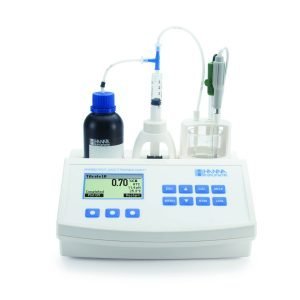
Total hardness of water
The ordinance prescribes that the value of the total hardness of water for the production of fruit juices it must be 0-4 ° nj, and if it is higher, the water must be demineralized.
How to measure water hardness?
There are several methods available, from fast checking test kits, photometers to titration systems.
Total Hardness Portable Photometer – HI97735
The HI97735 Total Hardness Photometer combines accuracy and ease of use in a simple, portable design. The advanced optical system provides lab-quality accuracy while its user-friendly design is easy for any user, making it the perfect photometer for your water quality testing needs. The HI97735 meter measures total hardness in water samples up to 750 mg/L (ppm) CaCO3.
- No warm up time needed before taking a measurement.
- Tutorial mode for easy step-by-step instructions.
- CAL Check for performance verification and calibration
- Easy navigation between chemical forms with a press-of- a-button:
– mg/L (ppm)
– French degrees (°f)
– German degrees (°dH)
– English degrees (°E)
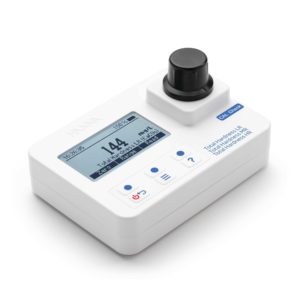
pH value
Each type of juice has a prescribed pH value that controlled throughout production. pH is measured in bases, concentrates, purees and flavorings before production. If we talk about apple juice, it should have a pH value around 3,4. pH values outside this range may indicate a microbiologically defective product or a product that is not technologically correct.
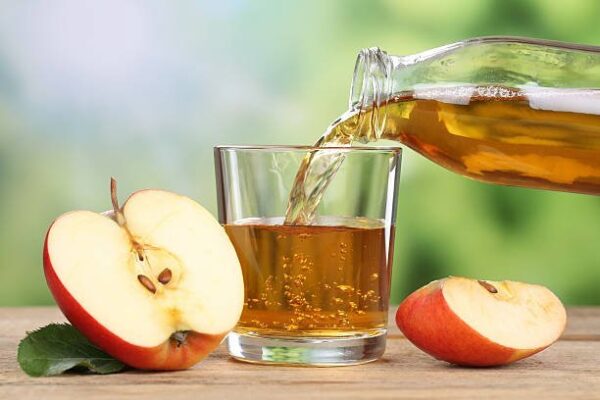
Is there an easy solution for measuring the pH value in your apple juice?
To measure the pH value of your apple juice, you can use HI98161 Professional Foodcare Portable pH Meter.
The HI98161 is a rugged, waterproof, portable pH meter that measures pH and temperature using the specialized FC2023 Foodcare pH electrode. This professional, waterproof meter complies with IP67 standards. The HI98161 is supplied with all necessary accessories to perform a pH/temperature measurement packaged into a durable thermoformed carrying case that holds the meters, probes and calibration buffers securely in place.
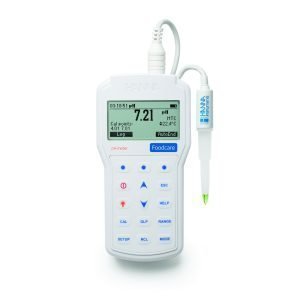
Or you can use Portable Food pH Meter – HI99161.
The HI99161 is a Foodcare portable, pH and temperature meter designed specifically for food applications. Monitoring pH in the food industry is critical to ensure the quality of each product. The FC202D pH electrode features a rugged, easy-to-clean, PVDF body with a conical tip, making it ideal for measurements in semi-solids. The FC202D uses a free diffusion sleeve type reference junction which prevents the typical problems of clogging in viscous liquids.
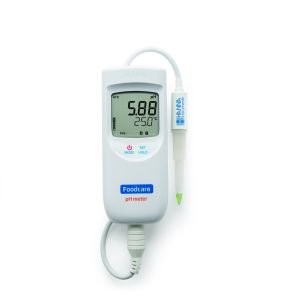
Dry matter content
The dry matter content in the raw material and juice is the basic information with which we can get an insight into the correctness of the product, its nutritional and sensory value. Dry matter is measured on freshly prepared sugar, bases, concentrates, purees and flavors. According to the ordinance, the minimum value of dry matter in apple fruit juice can be 10% or 11.2 Brix.
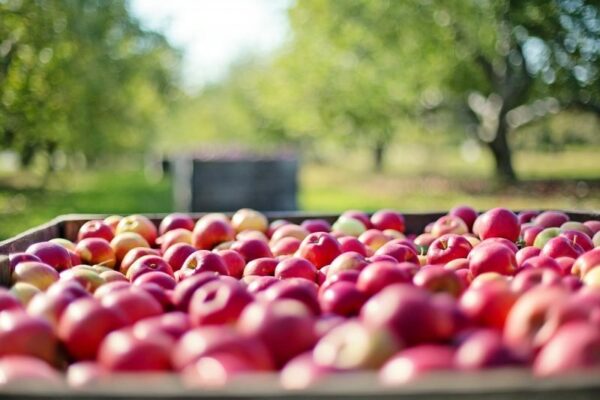
For measuring the dry matter in your product use Digital Refractometer for Brix Analysis in Foods – HI96801.
The HI96801 is a rugged, portable digital refractometer for food products designed to report the sugar content of aqueous solutions as % Brix. The HI96801 report the results with an accuracy of ±0.2% Brix. The operation of the meter is simplified with only two buttons: one button is to calibrate with distilled or deionized water and the other to take a measurement. All readings are automatically compensated for temperature variations according to the ICUMSA Methods Book standard and displayed within a 1.5 second response time. The sealed flint glass prism and stainless steel well, are easy to clean. Just wipe with a soft cloth in preparation for the next sample.

Pasteurization of apple juice
Pasteurization destroys bacteria without significantly changing the composition, taste and nutritional value of the food. Pasteurization is a method in which a temperature of up to 100 ° C is applied for up to 30 minutes. It can be carried out before or after filling the drink into the packaging. Hot filling includes filling hot pasteurized product temperatures higher than 85 ° C in prepared non-sterile and non-aseptic packaging, ie hot juice acts as a means of destroying microorganisms present on the inner surface packaging.
How to monitor this crucial parameter?
Monitoring of temperature is crucial in pasteurization and for that you can use K-Type Thermocouple Thermometer HI9350011.
The HI9350011 is a waterproof, portable K-Type thermocouple thermometer made for the food professional that is required to monitor temperature as part of a hazard analysis of critical control points (HACCP) plan including food service, production, packaging, transportation, restaurants or catering. The HI9350011, as a meter, can measure over a wide range of temperatures from -50.0°C (-58.0°F) up to 300°C (573°F) and offers a very high accuracy of ±0.4°C (±0.7°F).
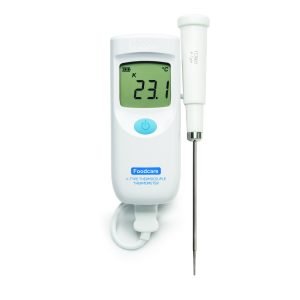
Author: Tajana Mokrović, mag.nutr.



